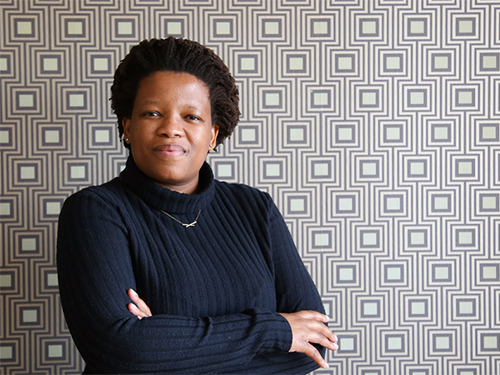
In June 2021, Stuurman published “Can We Be Safe? The Future of Policing in South Africa,” which unpacks the complex history of policing in the country and proposes solutions that are specific to the South African context.
Stuurman explains that South Africa’s post-apartheid police force has attempted to adopt a human rights-based approach, but a mid-2000s spike in crime and unemployment sparked a regression to highly militarized policing. “The South African police service has been around for 108 years, but only in the last 27 has it tried to transform into a force that is responsive to South Africans’ needs,” she says.
The goal of the book, she says, is to communicate that there is no quick and easy fix to reduce crime. “Our police mostly aren’t able to do the job of fighting crime because crime is a social problem, not just a security or policing problem. You’re not going to deal with high unemployment or high rates of gender-based violence by hiring more police officers or giving them more guns or more bullets,” she argues.
In writing “Can We Be Safe?” Stuurman tried to keep the focus on context and solutions that are relevant to South Africa. Though the global influence of the Black Lives Matter movement is undeniable, U.S.-centric responses to police violence — such as body cameras — are seen as ineffective or too expensive to be practical in South Africa.
Instead, Stuurman pushes for “radical accountability and transparency” from the South African police budget, which has grown by 66% over the last eight years. “That money could have gone to social services that demonstrate a reduction in crime,” she contends.
“Everybody wants to see results overnight. No one really wants to do the hard work of investing in social services and programs that will deliver more secure lives and livelihoods in five to 10 years. Every single cent that we give to the police should be justified.”
